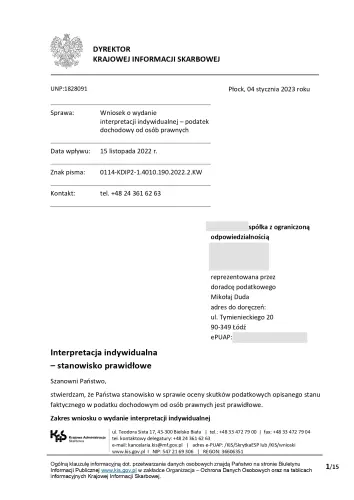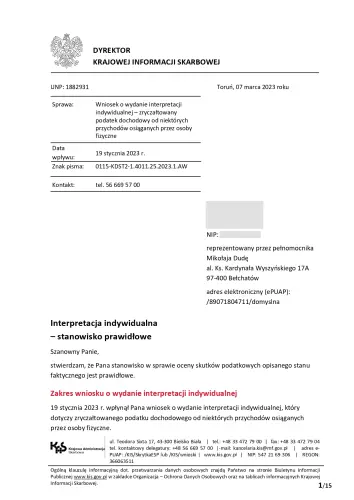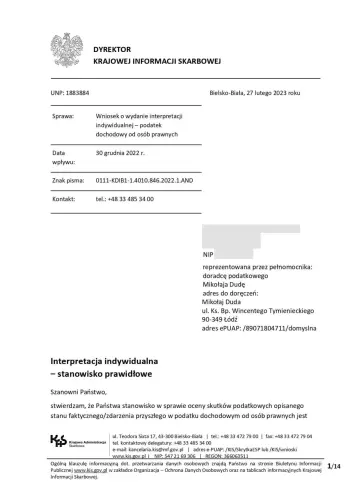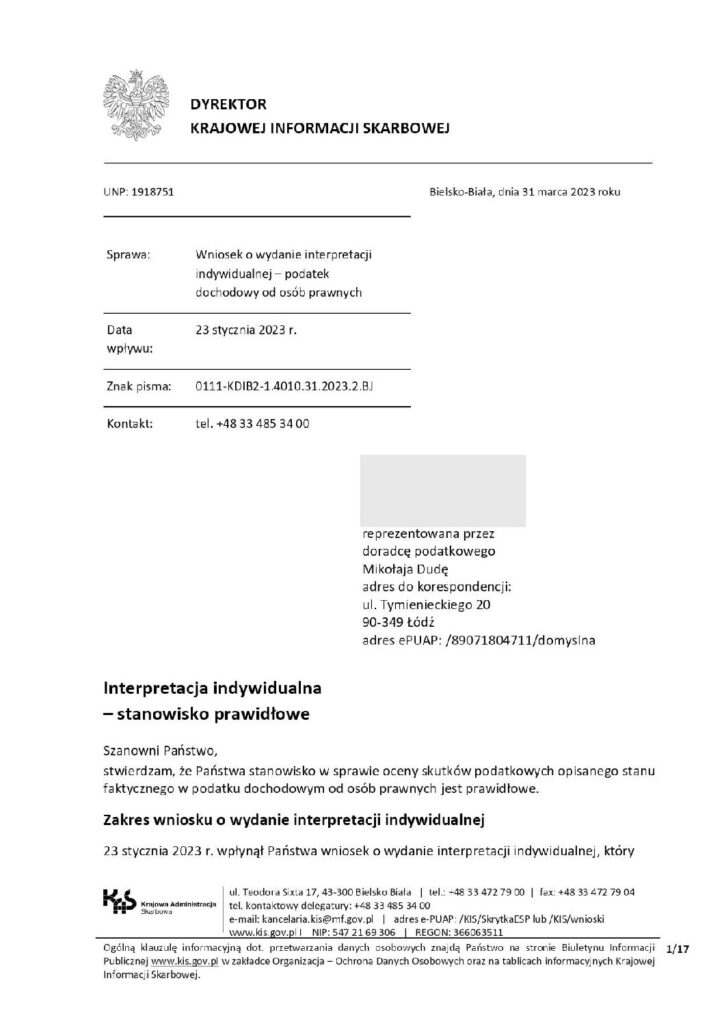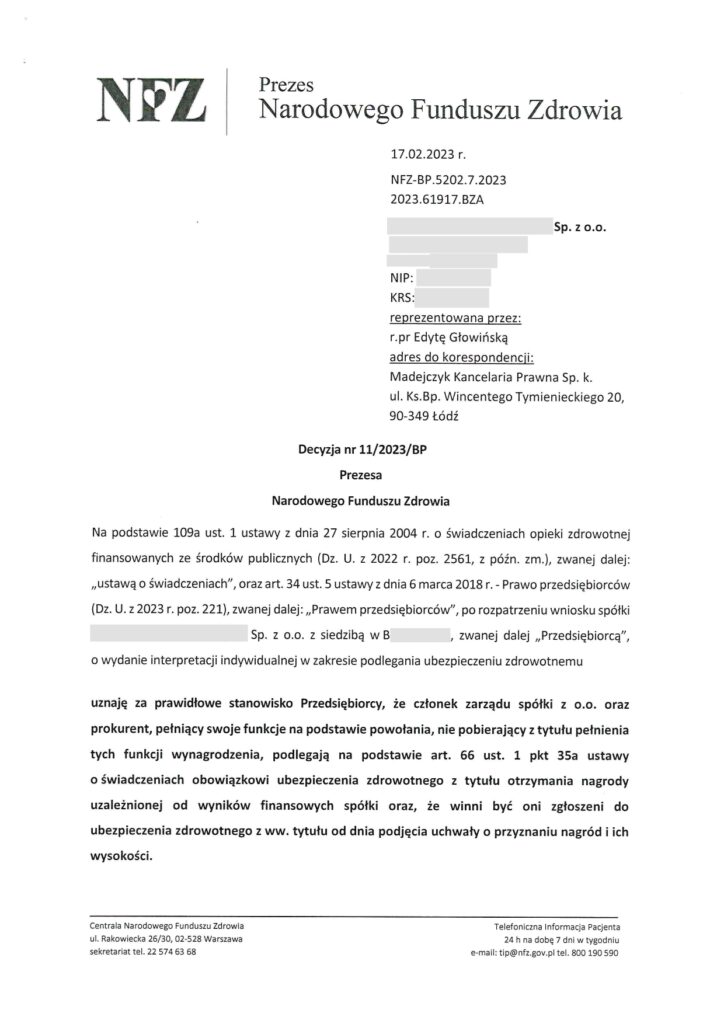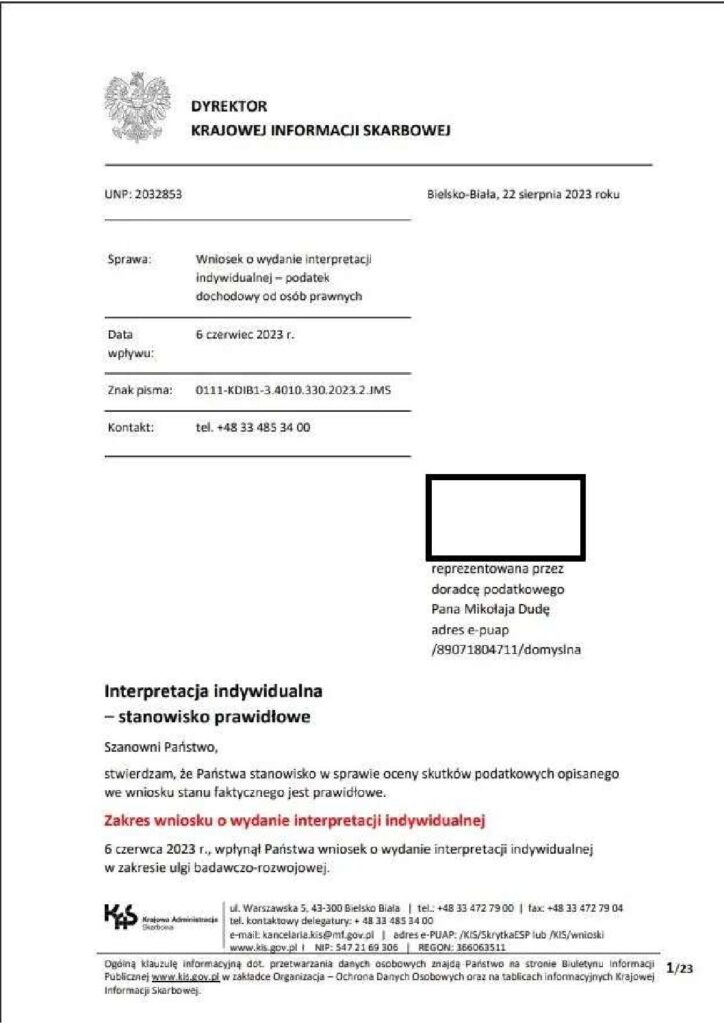The limited partnership, as a result of the changes introduced by the “Polish Deal” from 2022, may be an attractive form of business due to the mechanism for crediting CIT with a lump-sum PIT when dividends are paid and the structure of contribution charges.
What distinguishes a limited partnership from other companies is the specific division of partners into general and limited partners. A general partner is a partner who resembles a partner in a general partnership. He has the statutory right to direct and represent the company. At the same time, he is liable with all his personal assets for the company’s obligations. A limited partner, on the other hand, is a partner whose role is essentially based on passive investment in the company. As a general rule, a limited partner does not have the right to direct and represent the company, and his consent is necessary only to make particularly important decisions for the company. At the same time, a limited partner is liable for the company’s obligations in a limited manner – he is liable to creditors up to the amount of the so-called limited partnership sum established in the partnership agreement, and is free from liability for the company’s obligations up to the value of the contribution made.
A limited partnership is now a CIT taxpayer, which entails double taxation, however, shaped differently than for limited liability companies. For example, under ordinary circumstances, taxation is 34.39% (26.29% for small taxpayers) – the limited liability company pays 19% CIT on its income, and in addition the partner pays 19% PIT on the dividend paid (or 9% and 19% for small taxpayers). However, in the case of a limited partnership, there is a credit mechanism whereby the general partner, when paying dividends, credits the amount of CIT paid by the partnership against the lump-sum PIT, in proportion to his right to share in the profit – in other words, in the case of a general partner, double taxation does not occur. In addition, the amount of the health contribution for limited partnership partners will not depend on their income, since they do not receive business income.
With the above in mind, a limited partnership can be a viable alternative form of doing business if an entrepreneur decides to become a general partner of a limited partnership, who is personally liable for the obligations of such a partnership.


